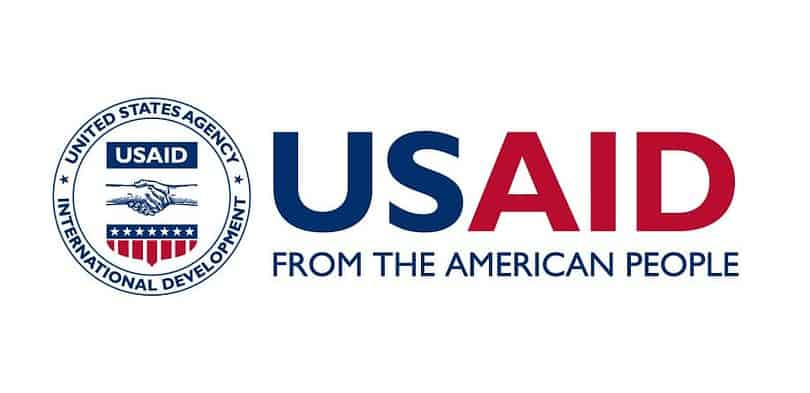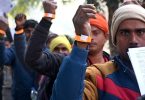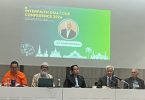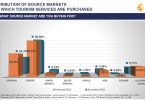Bp. CAPEHART: Ayo dadi miwiti gambar gedhe. Kepiye lan kepiye carane wanita kena pengaruh owah-owahan iklim?
KEKUATAN ADMINISTRATOR: Inggih, langkung rumiyin sumangga kula aturaken agunging panuwun dhumateng panjenengan sedaya ingkang sampun ngawontenaken adicara menika.
Lan mung ujar manawa iki UNGA kaping 10 - ora, UNGA kaping 11 lan iki pisanan aku melu acara kaya iki, sing mung dadi sumber utama akeh masalah lan kabutuhan utama babagan solusi. .
Dadi aku bakal ujar dhisik, wanita, amarga kabeh wong sing terpinggirkan, kabeh populasi sing rawan cenderung, ora kena pengaruh owah-owahan iklim. Kita ndeleng ing komunitas minoritas ing negara iki bola-bali. We ndeleng iku kabeh sak donya muter metu.
Yen sampeyan ndeleng tingkat korban nyata utawa tingkat kematian ing kahanan darurat alam, sampeyan bakal weruh wanita lan bocah-bocah sing nandhang sangsara. Lan sampeyan bisa uga mikir, oh, ya, iku prabédan biologis lan bisa uga ora bisa ngalahake gelombang pasang utawa apa wae.
Nanging akeh babagan norma jender lan apa wae, kaya sampeyan butuh ijin kanggo ngerti apa sampeyan bisa ninggalake lan kepepet ing omah. Umumé, mung tanggung jawab kanggo kesejahteraan kulawarga. Lan ora ana ing posisi, maneh, kanggo ngutamakake kesejahteraane dhewe.
Sampeyan ndeleng saben dina, kerentanan, amarga banyu dadi garing, lan aku wis teka ing pirang-pirang panggonan - aku yakin akeh sing duwe - ing ngendi iku pancen angel banget sanajan saben taun, kepiye carane malang beda karo sing mung sepuluh taun kepungkur. Ananging satunggal perkawis ingkang boten ewah, inggih menika limrahipun para wanita ingkang tindak ngumpulaken toya wonten ing masyarakat padesan, saengga toya ingkang sampun garing wonten ing sacelakipun masarakat, tiyang estri kedah langkung lumampah.
Lan mesthine dadi cara sing ala, utawa rute, wanita terus-terusan ngalami kekerasan adhedhasar jender ing dalan. Dadi luwih adoh, luwih sithik proteksi sing sampeyan lakoni, luwih akeh norma liyane sing ora ana ing raine katon ana hubungane karo owah-owahan iklim - norma sing nuduhake manawa nyerang utawa nyerang wong wadon. - norma kasebut banjur intersects lan kanthi mangkono tegese impact beda maneh ing wanita ing sektor uga.
Bp. CAPEHART: Dadi ing endi masalah kasebut paling akut?
KEKUATAN ADMINISTRATOR: Lha, angel milih. Aku bakal menehi sampeyan mung sethithik tur ringkes babagan cakrawalaku, utawa apa wae versi mundur saka cakrawala.
Ing taun kepungkur, aku lelungan menyang Pakistan nalika katelu saka negara ana ing jero banyu amarga kombinasi udan unprecedented lan gletser leleh - tabrakan bebarengan - lan persiapan lan infrastruktur ora nyukupi. Lan maneh, iku wanita asring, pungkasan tetep kanggo nglindhungi properti, kanggo nglindhungi ternak minangka wong golek pitulungan. Maksudku, kabeh wong kena pengaruh kanthi cara sing ala.
Lelungan saka kana, banjur menyang Kenya sisih lor lan menyang Somalia kanggo ndeleng limang musim udan sing gagal. Dadi ngelawan lengkap sing dakdeleng ing Pakistan, yaiku tanah sing garing. Mayuta-yuta ternak mati amarga kekeringan ing Tanduk Afrika. Sampeyan bisa uga mikir, uga, efek utama bakal ana ing pastoralists, sing, mesthi, wong-wong sing mundhakaken ternak.
Lan mesthi, sampeyan bener weruh spike gedhe ing lampus saka wong-wong iki, amarga padha, kanggo millennia, wis ternak kewan lan dumadakan kabeh wedhus utawa unta padha dibusak kaya ngono.
Nanging nalika ngatur efek ing kulawarga lan malnutrisi akut sing ditinggalake dening wong enom, utamane bocah-bocah ing umur limang taun, wanita sing kudu ngatasi bojone sing ora seneng, ngrampungake pitakonan apa sing bakal kedadeyan karo putrane. mbayangno sing gaya urip terus lan saiki dumadakan mikir, "Kepiye carane aku bisa menehi wong urip alternatif, panggilan alternatif,"Nanging uga ing posisi kanggo nyoba kanggo golek pangan kanggo paling enom.
Dadi maksudku, maneh, hits ing macem-macem panggonan. Aku mung, sing pungkasan sing daktawakake, aku mung ana ing Fiji.
Lan mesthi, kanggo kabeh Kapuloan Pasifik - meh kabeh - iku ancaman eksistensial.
Babagan kabeh warga negara sing kudu dipikirake ing sawetara taun ngarep ing ngendi dheweke pindhah menyang, apa sing ditindakake, kaya, yen bisa manggon ing wilayah negara, utamane pulo-pulo, sing kurang.
Lan mung conto cilik karo, ngendi wanita metu ana, industri berkembang.
Ing kasus iki, aku ketemu karo wong wadon karo klompok wanita sing lagi tuwuh anggur segara - kang, dening cara, éca.
Aku durung tau mangan anggur segara. Lan padha bangga banget karo anggur segara. Lan, USAID nyoba nyengkuyung, entuk kredit mikro supaya bisa mbangun bisnis, ngembangake bisnis.
Nanging mung ora sengaja, lan ing kene owah-owahan iklim mung muncul ing saben wektu.
Dheweke ujar, mung masalah saiki yaiku saiki kita kudu numpak prau luwih maju, amarga samodra anget, dadi panas banget cedhak karo pesisir, mula kita kudu luwih maju. Dadi kita luwih maju kanggo entuk anggur segara, sing tegese luwih suwe adoh saka kabeh kewajiban liyane sing kita lakoni minangka wanita ing rumah tangga.
Kajaba iku, kita nggunakake prau sing nganggo bahan bakar, mula kita ngetokake emisi luwih akeh menyang udara nalika kita lunga lan nyoba njupuk anggur segara iki kanggo ngembangake bisnis kita.
Dadi, sampeyan ngerti maneh, nang endi wae sampeyan ndeleng, Kapuloan Pasifik, Afrika, Asia - iku komunitas walloping.
Bp. CAPEHART: Aku pengin njaluk kredit mikro sing kasebut, aku pengin njaluk bantuan sing diwenehake USAID. Nanging apa masalah iki sing mung sampeyan omongake, sing akeh banget ing negara berkembang, nanging apa sing diomongake mung mung ing negara berkembang?
KEKUATAN ADMINISTRATOR: Ora, meh ora, nanging aku mung kelakon -
Bp. CAPEHART: Sing diarani pitakonan utama.
KEKUATAN ADMINISTRATOR: Kita manggon, Maksudku - aku mikir babagan bencana alam rong puluh telu ing kene sing biayane luwih saka siji milyar dolar ing AS saiki.
Kita wis ngalami dina, minggu, lan sasi paling panas ing cathetan, aku mung sawetara sasi pungkasan. Kanggo pisanan kita kudu nutup bisnis tartamtu, lan kemah musim panas, lan kesempatan kanggo wong enom amarga asap wildfire ndawakake menyang gesang kita.
Lan maneh, pengaruh sing beda-beda. Iki bisa uga minangka conto cilik, nanging nalika bocah ora bisa menyang kemah, dheweke bakal dadi ibu sing kerja - ing umume rumah tangga, mesthine duweke - sing kudu ngerti apa - kaya versi kedadeyan. karo COVID.
Nalika iklim tekan, kanthi cara cilik utawa cepet sing duwe pengaruh kesehatan sing abot lan pengaruh gaya urip sing abot, mula bakal ditindakake para multitasker ing omah kanggo ngatur.
Nanging, maksudku, uga mung efek finansial saka karusakan sing saiki ditindakake babagan apa sing meh saben dina ing sawetara wilayah ing Amerika Serikat ora bisa dikalahake.
Kedadeyan mung ora kaya sing ditindakake USAID amarga kita nindakake pakaryan ing luar negeri.
Lan pakaryan kita, aku bakal ujar manawa salah sawijining ketegangan lan tantangan paling gedhe sing kita lakoni yaiku kita diwenehi sumber daya lan sumber daya tetep sing ora tetep karo kemunduran pembangunan sing disebabake dening owah-owahan iklim.
Sanajan padha tuwuh, sumber daya kita saya tambah. Nanging sampeyan ora bisa terus. Nanging masalah liyane ora mung iku. Dadi akeh sumber daya kita kanggo njaga wong urip ing kahanan darurat kaya sing ana ing Libya sajrone minggu kepungkur - utawa sing dakkandhakake ing Pakistan utawa Somalia.
Lan sing ora bakal sampeyan lakoni yaiku njupuk kabeh bantuan kamanungsan kasebut lan nandur modal ing infrastruktur tahan bencana utawa ing wiji tahan kekeringan utawa utangan mikro kanggo petani cilik sing bener-bener bisa nggunakake smartphone kanggo ngantisipasi acara cuaca sing ekstrem lan paling nyuda apa kerugian kasebut.
Dadi - sing dak jelasake yaiku bedane antarane ketahanan lan bantuan darurat. Lan kita bobot banget minangka pamrentah lan minangka komunitas donor sing nulis babagan - Maksudku, iki pancen apik banget, minangka hak istimewa sing apik kanggo nyoba mbantu wong liwat wektu sing paling ala ing urip.
Nanging yen sampeyan nindakake kanthi cara kasebut, sing cukup mandheg, sampeyan ngerti yen sampeyan bakal bali maneh. Lan iku ekstra heartbreaking.
Amarga iku biyen ngandika, kita bakal ngomong kejut iklim, nanging saiki iku jenis kaya, iku kejut nalika iku fitur katebak bagean tartamtu saka urip tani negara? Lan apa sing dibutuhake saka kita?
Yen pai luwih gedhe, kita bakal nambah investasi kanthi dramatis kanthi daya tahan, sing kudu ditindakake. Pancen angel ora nylametake nyawa kanggo nylametake nyawa ing jangka panjang. Dadi kita ngimbangi iki kanthi paling apik. Nanging dudu tumindak balancing sing nyenengake.
Bp. CAPEHART: Sampeyan wis ngarep-arep pitakonan sing bakal dakkandhakake, mlumpat saka potongan utangan mikro, mula aku bakal maju. Ayo dadi pirembagan bab hubungan antarane pembangunan ekonomi lan owah-owahan iklim.
Kepiye hubungane masalah kasebut lan kepiye USAID ngatasi masalah kasebut bebarengan?
KEKUATAN ADMINISTRATOR: Inggih, maksudku, aku bakal ujar manawa kita lagi maju utawa maju, ayo ngomong amarga kita duwe dalan sing dawa kanggo ngetrapake perhatian marang owah-owahan iklim minangka fitur desain kabeh karya kita.
Dadi salah sawijining conto struktural, bisa uga ora sopan yaiku kita njupuk Biro Keamanan lan Ketahanan Pangan lan gabung karo tim iklim kita. Lan ing ngendi wae - nanging hubungane sing jelas kanggo wong ora tumpang tindih sing sampurna, nanging ana akeh - tetanèn minangka sumber emisi utama, mula emisi kasebut kudu mudhun.
Lan mesthine, pertanian cerdas iklim bakal dadi cara kanggo njaga keamanan pangan utawa nambah ing taun ngarep. Dadi siji merger. Nanging ing babagan pendhidhikan, sing nomer siji. Maksudku, kabeh kita, sapa wae sing duwe anak, iku nomer siji sing dikarepake bocah-bocah babagan kita ora mung apa sing bakal kelakon ing donya sing aku ngerti, nanging uga apa sing bisa aku lakoni?
Dadi, sanajan mikir babagan pendhidhikan babagan pamrentahan - mula ora stabil banget kanggo pamrentah sing ora bisa ngetutake owah-owahan iklim, apa ing sisih ketahanan utawa ing sisih darurat, amarga iki nambah kapercayan ing institusi sing kita deleng. akèh bagéan donya.
Iku ora mung babagan ekspor teknologi pengawasan, sampeyan ngerti, saka RRC utawa demokrasi sing diserang kanthi cara liya.
Ana uga mung kedadeyan ing jagad iki sing nalika pamrentah ora bisa ngetutake, bakal nambah sinisme babagan institusi. Dadi iki minangka cara sing dawa kanggo ujar manawa kita nindakake pakaryan pamrentah ing USAID, kita nindakake pendhidhikan, kita nindakake kesehatan umum sing ana gandhengane karo iklim.
Nalika sampeyan ndeleng owah-owahan pola malaria, WHO, aku mikir, prédhiksi tambahan 250,000 wong bakal tiwas ing taun 2030 amarga iklim - apa iku stres panas utawa malaria utawa kekurangan banyu, malnutrisi sing tuwuh saka iku.
Dadi ing endi sing kudu ditindakake minangka agensi yaiku menehi perhatian marang daya tahan lan perhatian marang owah-owahan iklim lan apa tegese komunitas ing kabeh sing ditindakake.
In a sense, USAID is a climate agency, even if we still have a climate team that works as a climate team per se, mainstreaming this agenda is what our missions are trying to do all around the world.
And this is not because I anticipate the, you know, the concerns of some maybe in our domestic politics on this – and I’m sure you’ll get there, but this isn’t USAID foisting anything.
This is the cri de coeur for you know, heard all around the world, that this is a game changer. Our development trajectories were going here – COVID hit and now we have what could feel like a COVID-like, not not of the same scale, but battering again and again and again.
So just as we’re now thinking differently about pandemic prevention, what should that lead us to think about when it comes to embedding climate in the mindset of all public spending and all notions of mobilizing, mobilizing private capital, because that’s, of course, going to be a big part of the solution.
So we’re that’s – it’s this mainstreaming and not having climate live over here. But given that it is this game changer and given it’s our host countries and the communities in which we work and of it works. It’s John F. Kennedy’s pleading gives us more of the tools to adapt to this shell-shocking phenomenon.
Bp. CAPEHART: Well, I asked the question about economic development because, with economic development comes perhaps better lives, and better living conditions, which then can exacerbate the issues related to climate change.
So how do you – and I wrote it down really fast – that mainstreaming, how in mainstreaming climate in the things that you do. How do you find that balance between helping people help themselves, while at the same time not doing it in a way that exacerbates the climate problems that we all have to face?
KEKUATAN ADMINISTRATOR: Yeah, and I mean, I think one example I think that you’re alluding to is, you know, as people get richer, they buy more meat and that causes, you know, more emissions or they travel more, they’re flying more there.
And absolutely, I mean, we’ve seen that the emissions trajectory in both the PRC and India reflected that.
Our emissions trajectory, back as we were bringing our economy online and modernizing, absolutely reflects that. So I think that is profound. I will say the fact that solar power, the cost of solar has come down by 85 percent. The cost of wind is down by 55 percent. Where we work, the demand signal for renewables is very, very significant – which doesn’t get it mediating some of the other features of getting wealthier.
But it does get to the urgency of making clean energy transitions as these prices come down. It is a better bet. And so again, when we have these exchanges on the Hill and it looks to some who are skeptical somehow still of climate programming, you know, that we’re bringing our green agenda to the countries in the communities we’re working in – no, it’s not like that at all.
They’re saying we can’t afford this other thing.
But actually, we can pop up a solar panel and have a water pump that we’ve been trying to get in this village. We can go off the grid in ways we never – where the state is not going to get here any time soon.
This was my experience out in Bekaa Valley in Lebanon, where USAID had worked to, you know, build a bunch of solar panels that powered electricity and ended up actually reducing tension between refugees who were being generously sheltered by Lebanese host communities, Syrian refugees, and the Lebanese.
Because they were no longer fighting over water because they had water because they had solar – but to attach to the grid, no way. And so then those tensions, who knows what would happen with that.
So the idea is that these investments are cost-effective over time, that actually you can develop, along the lines of what you’re describing, in a clean way.
I think the other aspects of consumption need to be dealt with as part of civic education and as part of norm work because it is true that in many, many societies, and again, including our own back in the day, as you increase your livelihoods, your income, consumables are a very attractive way to expand those new resources.
This feels like a high-class problem in most of the countries we’re talking about. I mean, I’m talking about working with small-scale farmers who are paying double this year for fertilizer than they were paying before Putin invaded Ukraine, who just need a little loan to be able to get access to some of those drought-resistant seeds that are going to increase yields by 25 percent.
But again, finding the resources to get them that. Getting the private sector interested in adaptation. But the question that we should be thinking now about, if we can be successful, if we can help them withstand the negative effects of climate change and the like here in America, grow jobs out of also these changes to their economies, then what?
Then we will be grappling with the kinds of things that have further fueled emissions in more recently developed countries.
Bp. CAPEHART: As you alluded to many times, there’s a lot of good news related to the development of clean energy alternatives. That being said, though, global emissions once again hit a record high in 2022, and carbon dioxide in the atmosphere has risen to levels not seen in millions of years. Are we moving in the wrong direction despite glimmers of hope?
KEKUATAN ADMINISTRATOR: Well, I mean, I think all of us can answer that question in two ways. And we talk to ourselves all day – on the one hand this, and on the other hand that. But what we can say is we’re certainly not moving fast enough. And you know what breaks my heart is, it’s a little bit like another version of the vicious cycle you were kind of describing.
But when you see the wildfires, and the rate of wildfires, and then all of the carbon emitted and all of the good that had been done with carbon emission reductions – and that being not washed away – whatever, smoked away, burned away – that’s heartbreaking because these investments are accelerating.
They are building momentum. So I think that, and that’s not the only thing that’s heartbreaking.
There’s so much that’s happening day to day and a little bit of the despondency, I think, setting in as well – as people just open the newspaper, and whether it’s in their own community or one further afield or even something like what happened in Libya, which just captures the imagination of, which was its own sui generis issue with regard to governance and infrastructure, but would not have happened that way but for the intensity of Storm Daniel, which is just being seen in so many communities.
But what I do think it’s important to come back to, at least as proof of concept, is that in Paris the projections – they were, we the world, were on a track to warm 4 degrees and we are now on a track to warm 2.5 degrees.
So that is a reflection of the agency that people have claimed over this trajectory. The problem is we need to curb warming at 1.5 degrees, but that delta from four to 2.5 should give people at least a sense that actually collectively we are doing things that are making a difference. There’s no doubt we are doing things that are making a difference.
If I could, though, I think the area that we have – I mean, as John Kerry likes to say, if we don’t get mitigation right and the carbon reductions right, there’ll be no planet to adapt. He makes a comment like that a lot.
We, at USAID, are in the mitigation and adaptation business, as is Secretary Kerry and his team. But I think in mitigation, what I think gives one hope is just how much the private sector has leaped in now recognizing that there’s money to be made. And I’d love to rely on people’s good intentions and their feeling of fellow humanity, but it’s much more reliable if they think there’s money to be made.
And that shift has occurred. And you see it in the IRA, which is already defying even the best projections and extrapolations that people did. I mean, this is going to have way more collateral effects and bring down carbon way more, I think, than people could have, just strictly speaking, anticipated because of a cascade now of private sector interest fueled and catalyzed by the underlying legislation.
And so too, as the prices come down again, there’s a virtuous cycle. Adaptation – we’re not we’re not there. And I don’t know if we’re ten years behind where we are on mitigation – where we are on mitigation.
Like it’s the same thing going to happen in ten years where we look back and say, oh, we lost all that time. Why couldn’t private-sector actors have seen as well that there’s good to be done and money to be made?
I guess if you have to think that way around the insurance industry in the agricultural sector, in Fintech, I mean, all these tools are going to be absolutely critical in particularly rural areas and those areas that are most vulnerable to climate change.
But about two percent of funding for adaptation comes from the private sector right now, and that has just got to change.
So President Biden and we have done a big call to action to the private sector, but it’s slow going. And even if you take – forget the specific sectors that have a direct nexus with the need to build resilience – look at it in even more stark terms. The market share that so many companies are hoping to capture is themselves going to have less money to spend, maybe in flight, maybe at war.
And so the positive of that is, hey, if we can help them adapt and be more resilient and where these emergencies happen, but don’t wallop communities in the same way and they bounce back, those are consumers that will be our consumers. But the negative is what if, you know, millions, tens of millions of consumers are taken offline because they are driven into poverty?
The predictions now are that 100 million more people driven into extreme poverty by 2030. But that’s within our hand, that adaptation. There’s so much less to, as I would say to my kids, there’s room to grow.
The areas that are the most troubling in some ways, there’s really room to grow. And you could see a cascade of the kind that we’ve seen on carbon mitigation.
Bp. CAPEHART: Administrator Power, we got a minute and eight seconds and this will be the final question. The name of this conference is This is Climate: Women Leading the Charge. So how do you see women reshaping climate leadership?
KEKUATAN ADMINISTRATOR: We, USAID, and Amazon, the company, not the forest, launched a gender equality fund, a gender equity fund at COP, and we launched it with $6 million in funding. And this is for women.
It’s for projects that will benefit women, it’s for projects that are driven by women in adaptation or in mitigation – the whole or the protection of natural ecosystems – but things broadly in the climate space.
And today we have the Visa Foundation and Reckitt, a company out of the United Kingdom, who have joined us and matched that initial – USAID put in $3 million, Amazon put in $3 million, and have added $6 million.
Why do I mention this? It’s not a huge amount of money yet. We are going to get up to $60 million, we hope, in rapid order.
This is part of another cascade that we would like to see. We’ve put out a request for proposals, incredible women leaders are putting proposals in.
These can be small projects. A lot of the climate finance right now is not going to small projects, it’s going to big international organizations. So working more with local partners is going to be absolutely key.
But these are going to be the success stories that are going to inspire people to invest more and to believe that change can come. And sadly, there are just not that many examples of climate finance facilities that are targeted and tailored toward women, even though women are bearing the greatest brunt.
And women, I think, in my experience, are doing the most innovative work in dealing with the consequences of climate change and trying to lower those consequences in the years ahead.
Bp. CAPEHART: Samantha Power, the 19th Administrator of USAID, thank you very much for joining us today.
KEKUATAN ADMINISTRATOR: Thanks, Jonathan.
What is USAID?
USAID stands for the United States Agency for International Development. It is an independent agency of the United States federal government that is primarily responsible for administering civilian foreign aid and development assistance. USAID’s mission is to promote economic and social development in countries around the world, with a particular focus on reducing poverty, promoting democracy, and addressing global challenges such as public health crises, environmental sustainability, and humanitarian crises.
Some of the key functions and activities of USAID include:
- Providing humanitarian assistance: USAID responds to natural disasters, conflicts, and other emergencies by providing humanitarian aid, including food, shelter, and medical supplies, to affected populations.
- Promoting economic development: USAID works to stimulate economic growth in developing countries by supporting projects and programs that create jobs, improve infrastructure, and foster private sector development.
- Supporting democracy and governance: USAID promotes democratic governance by providing technical assistance and support for fair and transparent elections, strengthening civil society organizations, and advocating for human rights and the rule of law.
- Advancing global health: USAID plays a crucial role in global health initiatives, including efforts to combat infectious diseases like HIV/AIDS, malaria, and COVID-19. It supports healthcare systems strengthening, family planning, and maternal and child health programs.
- Environmental sustainability: USAID works to address environmental challenges, including climate change and natural resource management, through projects that promote conservation, renewable energy, and sustainable agriculture.
- Education and capacity building: USAID invests in education and capacity-building programs to enhance the skills and knowledge of individuals and institutions in developing countries, thereby contributing to long-term development.
- Food security and agriculture: USAID supports programs aimed at improving food security, increasing agricultural productivity, and reducing hunger and malnutrition in vulnerable populations.
USAID operates in partnership with governments, non-governmental organizations, international organizations, and other stakeholders to achieve its development goals. It is often involved in projects and initiatives that aim to alleviate poverty, promote stability, and enhance the well-being of people in countries where it operates. The agency’s work is guided by the foreign policy objectives of the United States and the broader goal of fostering global development and progress.


















![Sepur Hyperloop China: Sekilas menyang Masa Depan Transportasi 17 Warta Wisata Wisata | Domestik & Internasional Hyperloop Train China [Foto: Hyperloop Transportation Technologies]](https://eturbonews.com/wp-content/uploads/2024/02/180720163348-hyperlooptt-china-capsule-145x100.jpg)



